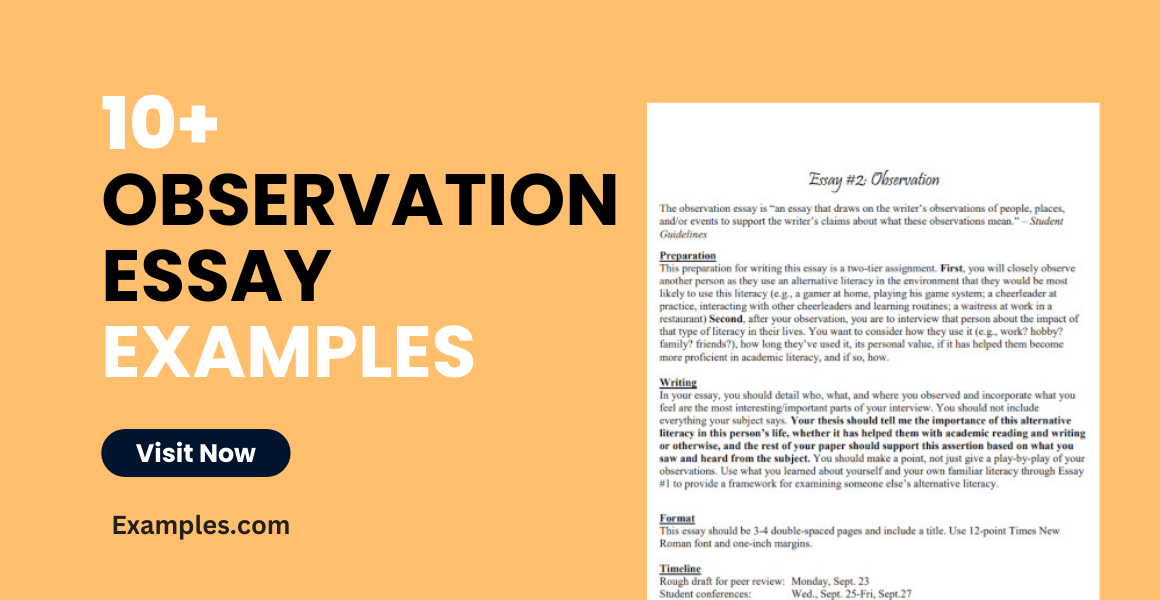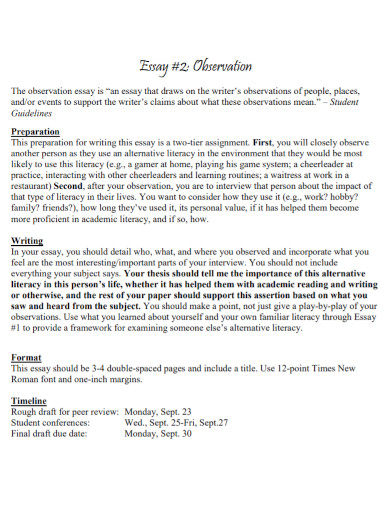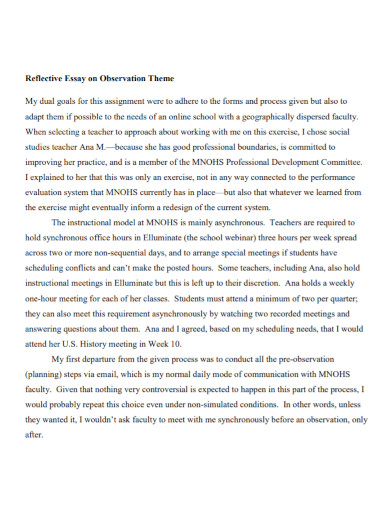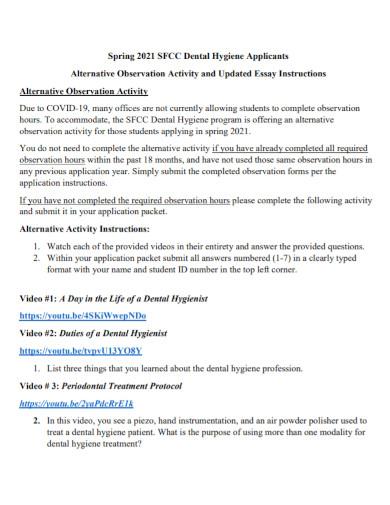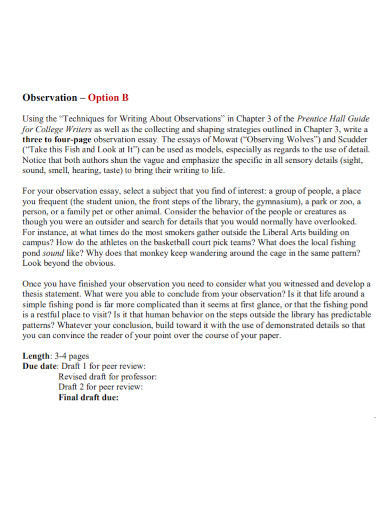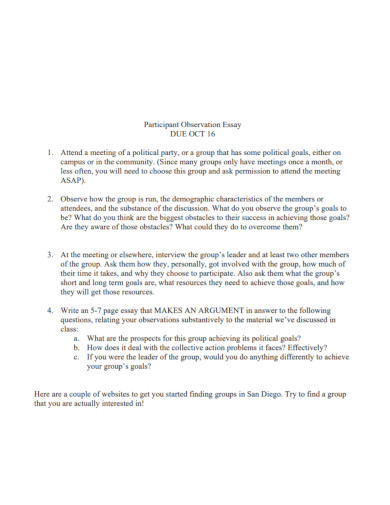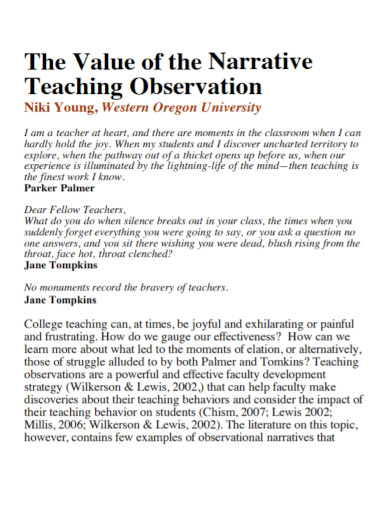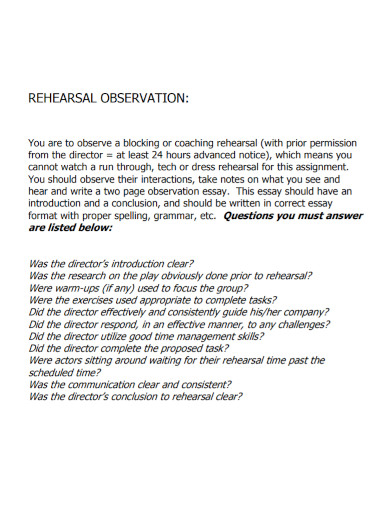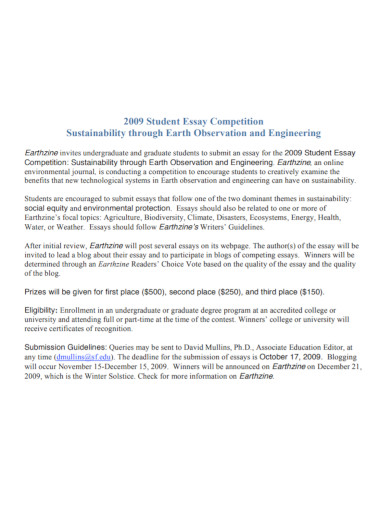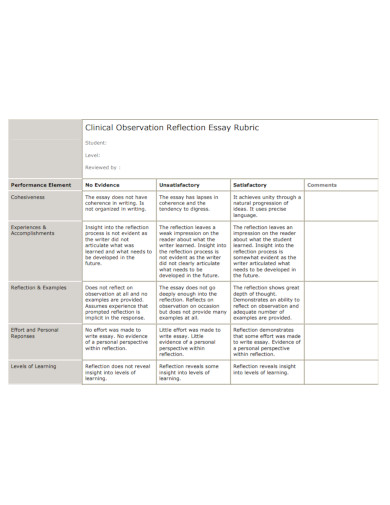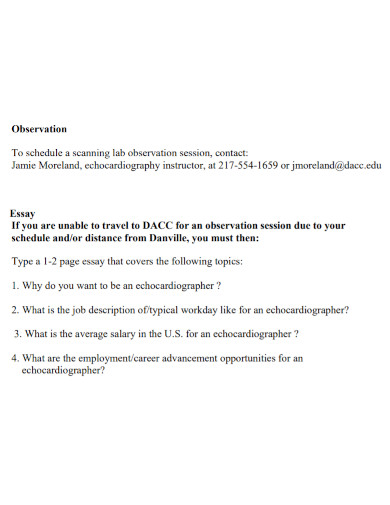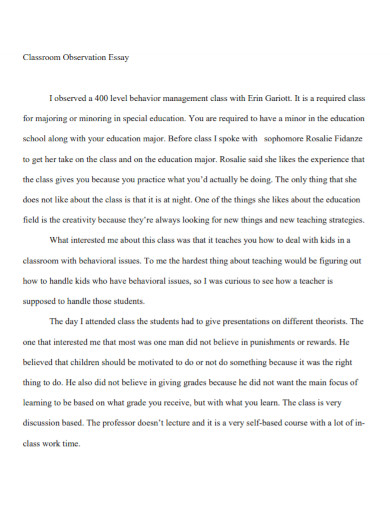10+ Observation Essay Examples to Download
To properly observe something, you need to make use of all your five senses. Paying attention to all the details and being level-headed is a must. That said, a lot of effort goes into the act of observing something. The data gathered in your observation, whatever it may be, is necessary. Therefore you should write an observation essay and share your findings with the readers.
10+ Observation Essay Examples
1. Writers Observation Essay
2. Essay on Observation Theme
3. Alternative Observation Essay
4. Observation Essay Template
5. Participant Observation Essay
6. Narrative Teaching Observation Essay
7. Rehearsal Observation Essay
8. Earth Observation Student Essay
9. Clinical Observation Reflection Essay
10. Basic Observation Essay
11. Classroom Observation Essay
What Is an Observation Essay?
An observation essay is a piece of academic essay that incorporates the observer’s perspective over a situation, event, behavior, phenomenon, and even a person. In this document, the writer should state everything he or she directly noticed on the subject. In addition, they can also use first-person narration in this paper.
How to Write a Well-Versed Observation Essay
Whether you are a student writing an essay of your observation for a school assignment or educational research, or maybe a professional conducting a business analysis, you should compose it critically. The findings you present in your observation essay could be necessary to your field or industry. To keep it professional and informative, incorporate appropriate elements and organize it properly.
1. Follow Guidelines
If there are guidelines provided, ensure to read them beforehand. The list usually includes instructions regarding the format, the length, essential questions, the structure, and the deadline. To avoid forgetting the items to remember, you can secure a checklist beforehand. These details will act as your guide and will set the limits for your essay writing.
2. Devise an Outline
Considering that you already finished observing, take out your notes, and start constructing your outline. Consider basing its structure on the guidelines. You should decide what information goes on in a particular paragraph and organize it to be comprehensive to the general readers. You can save your energy by researching sample blank outline templates online instead of starting from scratch.
3. Compose Your Thesis Statement
Write your thesis statement in your introduction. After writing your hook and engaging your readers, it is now time to state what the essay will discuss. What did you observe? What are the general idea and nature of your essay? Your thesis statement will act as the central idea of your descriptive writing. Its length must only be one sentence.
4. Close With a Detailed Conclusion
After presenting the main ideas and supporting your claims, you should provide a conclusion statement that would sum it all up. In the last paragraph, you should restate the thesis statement and explain how all of these ideas are relevant to each other. Your conclusion should link back to the idea in your introduction.
FAQs
How do you observe something properly?
The practice of observing is necessary for writing field reports of studies, especially in science and psychology. When you do an observation of something, it is advisable to research the subject you are studying. Also, you need to focus on your visual and hearing senses and your thought process. Avoid or get rid of factors that can distract you.
What are the different methods of observing?
The various methods of observing are categorized based on the level of involvement of the observer with the subject. If an observer is not noticed or personally seen by the participants, then he or she is employing the complete observer method. On the other hand, if the subjects recognize and interact with the observer, the implemented method is observer as participant.
How should you note your observations?
The first step in taking field notes of your observation is, write down the necessary details of the subject. Also, you should include the time and place. In writing your findings, you should stay objective and factual. Also, don’t forget to write a description of the setting and the materials involved.
The readers of your observation essay are not present at the time you did your observation. An observation essay is effective if its content is enough to supply information that would make the readers feel as if they are personally present at that time. Secure an observation essay, and earn an award certificate from your school or your work.


